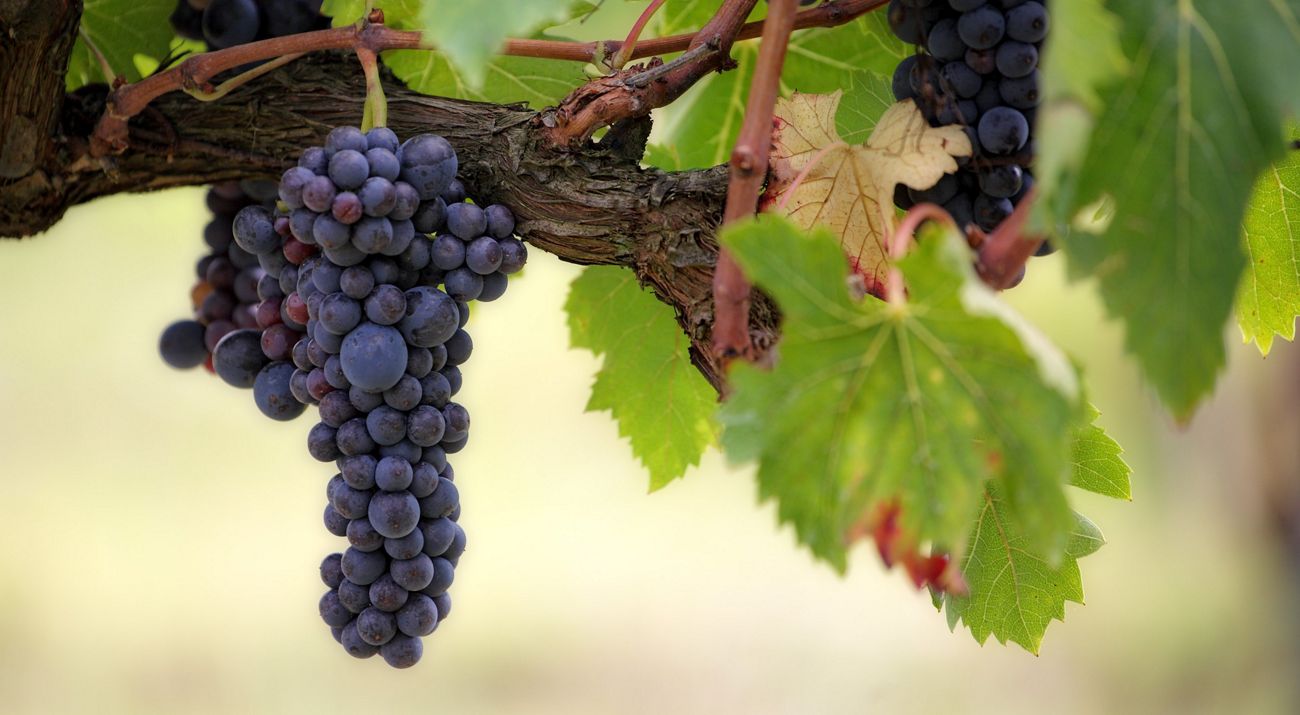Wine may not be the first thing you worry about when it comes to climate change. Or maybe it is—no judgment. But wine, and particularly grapes, are a key indicator of a changing climate.
Even the slightest change can affect the timing of grape harvests, the amount of fruit produced and the quality and complexity of the wine. Winemakers around the world are already feeling (and tasting) the effects of climate change, and many are working hard to reduce the impacts to their vineyards.
For winemakers, climate change isn't something looming in the distant future. It's happening now.
That’s why as a leader in science-based solutions, The Nature Conservancy is sharing knowledge with grape-growers and winemakers to help improve soil health, water quality and agricultural management—around the world and right here in New York.
How is Climate Change Impacting Winemakers in the Finger Lakes?
New York’s best-known wine regions are the Finger Lakes, Long Island and the Hudson Valley—and each has a unique set of problems and solutions.
Suzanne Hunt, who helps run her family’s seven-generation farm and winery, Hunt Country Vineyards, shared some insights on the challenges wineries in the Finger Lakes have been facing in recent years.
Quote: Suzanne Hunt
The increasingly extreme and unpredictable weather is attributable to climate change, and that’s hard on winegrowers and all farmers.
In the past decade, the region has seen flash floods, droughts and damage to vines from polar vortex temperatures in the winter. “You can’t attribute any one weather event to climate change,” said Hunt. “But overall, the increasingly extreme and unpredictable weather is attributable to climate change, and that’s hard on winegrowers and all farmers.”
What Makes Long Island’s Wine Region Environmentally Sensitive?
Surrounded by water and sticking 120 miles out into the Atlantic Ocean, Long Island wineries face significant obstacles as well.
Richard Olsen-Harbich of Bedell Cellars is a pioneer in Long Island winemaking. In his 40 years of winemaking, he’s seen these challenges first hand. “This area is very environmentally sensitive,” he explains. “Climate change won’t make this any easier.”
Olsen-Harbich also notes that most vines are ripening earlier and he thinks that’s something grape growers across the world are seeing as well.
Who Are the Farmers on the Frontlines?
Greg Sargis, our ecological management expert in the region, describes farmers as “the original conservationists,” on the frontline of environmental protection and defense, and he might be on to something.
Long Island made great strides in their commitment to sustainability back in 2012, when a group of producers banded together to form the Long Island Sustainable Winegrowing Initiative—a not-for-profit organization that provides education and certification for Long Island vineyards. The initiative stresses that the health of their vineyards is contingent upon the health of Long Island’s complex system of waters.
In the Hudson Valley, home of some of the country's oldest—and hardiest—vineyards, the weather remains a challenge. The river moderates the climate, but the area’s high humidity, precipitation and cooler temperatures dictate which vines will thrive. Matthew Spaccarelli, a winemaker at Benmarl Winery acknowledges the challenges created by climate change. He plans to use nature and science—new technologies and practices—to create better wine while addressing the issue of sustainability.
Quote: Suzanne Hunt
We can do everything perfectly in our vineyards and perfectly in the wine cellar to make the most spectacular wines, but it will all be for nothing if we don’t solve the climate crisis.
At Hunt Country Vineyards, they are adopting strategies and practices that will enable them to maintain a successful operation in the face of climate change. They are working to replace the region’s dependence on fossil fuels with clean, advanced renewable energy. The vineyard has installed a 348-panel solar energy system and an award-winning geothermal heating/cooling system along with hundreds of LED lights. They have also installed five electric vehicle chargers for customers to use.
For Hunt Country Vineyards, farming is more than just creating great wine. “We can do everything perfectly in our vineyards and perfectly in the wine cellar to make the most spectacular wines,” says Hunt, “but it will all be for nothing if we don’t solve the climate crisis.”
How Can We Help Wine Growers in the Fight Against Climate Change?
If we don’t support farmers who are trying to transition to climate-friendly practices, they may struggle to make the necessary investments.
We depend on nature, not only to grow grapes for wine, but also the food we eat every day. As consumers, we can help support the efforts of wine growers. Here’s how:
- Buy wine directly from local farmers and winemakers. The best way to support these farmers and their efforts is to buy what they’re producing.
- Request local, sustainably produced wines at your favorite liquor stores and restaurants.
- Learn more about the details and discover how sustainable growing practices have taken root in wine regions near you.
- Read wine labels and look for sustainability certifications.
- Support organizations like The Nature Conservancy, who are working to tackle climate change from multiple angles.
We all have a role to play when it comes to reducing carbon pollution and making more sustainable choices so that people and nature can thrive. Let’s raise a glass to that.
